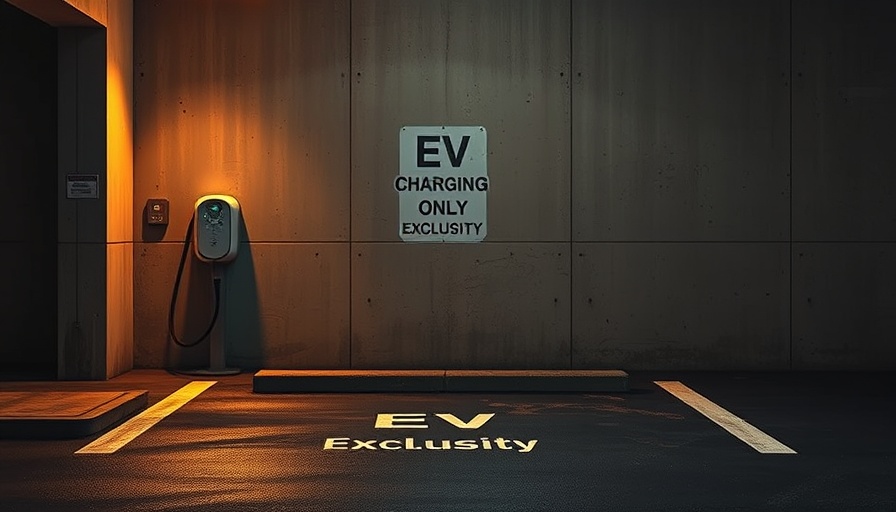
Why the EV Charging Market Poses Significant Challenges
The electric vehicle (EV) space has undeniably gained momentum, driven by a global push for sustainable transportation solutions. However, despite its promise, many believe the EV charging industry may face substantial hurdles, particularly in emerging markets like India. For entrepreneurs eyeing the EV charging startup scene, understanding these challenges is crucial.
Urban Charging Solutions Are Competing with Home Installations
One of the principal factors that temper optimism in the EV charging space is the competition between urban charging stations and residential chargers. Most EV users can charge their vehicles overnight at home, which essentially eliminates the need for frequent urban charging. Entrepreneurs may find themselves betting on the hope that a driver will need to recharge outside their home, but the data suggests that this is not a reliable business model. Charging stations must ensure that they provide exceptional convenience compared to domestic chargers, which may involve considerable costs and logistics.
Technological Development: A Double-Edged Sword
Innovations in EV technology, while essential, can also present risks. Rapid advancements, such as induction charging and electrified roads, may make existing technologies obsolete overnight. Startups that invest heavily in certain types of charging technology might find themselves left behind as the industry evolves. Entrepreneurs need to assess the sustainability of tech investments—overcommitting resources to fleeting trends could jeopardize their long-term viability.
Overhyped Rural Opportunities: A Reality Check
The narrative surrounding extensive rural charging opportunities is often inflated. As seen in developed markets, rural charging stations frequently suffer from underutilization. Entrepreneurs may expect sweeping rural demand for charging solutions, but the current reality indicates otherwise. Without a significant uptick in EV ownership in rural areas, charging infrastructure risks being underused, leading to reduced returns on investment.
Dependency on Imported Technologies
Most startups in the charging infrastructure rely heavily on imported technology, leaving their futures uncertain in a rapidly changing market. As the landscape evolves, these startups could be outgunned by industry giants who innovate at breakneck speed. This dependency also poses ongoing research and development challenges, significantly affecting profitability over time.
The Pricing Dilemma for Charging Stations
For EV charging startups to thrive, they must find a sweet spot in their pricing. The capital expenditures required for establishing charging stations are substantial, and projecting a high cost to consumers can deter potential patrons. Moreover, if startups lean excessively on government subsidies to offset these costs, they become reliant on unpredictable external funding—an inherently risky strategy.
Future of EV Charging: The Path Forward
While optimism exists about the viability of EVs, it’s crucial to maintain a realistic perspective regarding charging infrastructures. Entrepreneurs need to brace for competition from established automakers that are entering the charging market, equipped with significant resources and expertise. Strategic planning, technology investment, and a keen understanding of market dynamics will become key determinants of success in this nascent industry.
As businesses consider their place in the EV ecosystem, understanding the real-world challenges presented by EV charging startups could provide valuable insights into making informed investment decisions. For those ready to examine deeper industry trends and measures for success, the journey into this space is fraught with considerations and potential.
 Add Row
Add Row  Add
Add 




Write A Comment